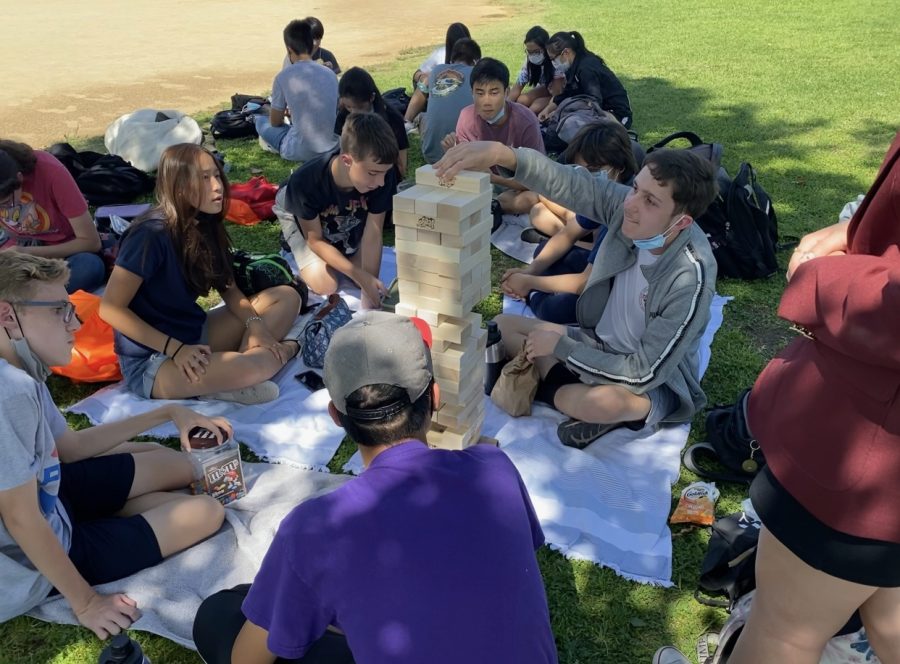AHS’ Peer Mentoring Program for Students with Autism
January 20, 2022
Since 2016, Arcadia High School (AHS) has had a voluntary peer mentoring program specifically for students with autism. Founded by Ms. Genevieve Huffman, a speech language pathologist at AHS, the program has been active for six years now, and currently has 26 mentors and 24 mentees.
During Ms. Huffman’s initial research, she discovered that daily intervention classes and peer mentoring were the most helpful to students with autism and improved cognitive skills. With this knowledge, she decided to start the program, hoping to bring students with autism positivity and an opportunity to practice social skills.
Although many have heard of autism, misconceptions of it aren’t uncommon. Ms. Huffman explained that it’s a neurobehavioral spectrum disorder.
“It’s called a ‘spectrum’ because it includes a range of conditions characterized by challenges with social skills, repetitive behaviors, speech and nonverbal communications, and others. It also reflects the wide variation in strengths possessed by each person with autism,” she said.
The peer mentors consist of upperclassmen recruited by Ms. Huffman; common traits she looks for are responsibility, empathy, kindness, patience, and social skills. They’re recruited at the beginning of each school year and go through rigorous training to become a mentor: they discuss confidentiality rules, the role of a mentor, and ways to better communicate with their mentees.
For example, peer mentors are taught the acronym “IBRAPN,” which is used as a guideline for communicating with students with autism. Each letter stands for a helpful phrase, such as “I can talk about my perspective” or “Reinforce the positive.” While mentors are given training, they still encounter challenges, such as finding common ground with mentees. But once they overcome this, it’s a rewarding experience.
Peer mentor senior Brandon Lin shared about working with his peers, expressing how he enjoys learning about them and their interests. For him and many other mentors, the program provides a different perspective and an opportunity to look past their autism, learn about them as a person, and connect with them.
“Just one thing I love about them is that they’re always down to talk, because they’re really open and just really want to be able to talk about what they like [and] their interests,” said Lin.
Every Tuesday and Wednesday, peer mentors and mentees meet at lunchtime on the AHS softball field. They talk about a range of subjects, from school to their interests, and end lunchtime with a game.
Since making friends can be a struggle for students with autism, the peer mentoring program is able to provide friendships and an outlet to practice socializing. It’s a safe, non-judgemental environment that works to help students with autism feel heard.
Photos courtesy of AHS PEER MENTORING

